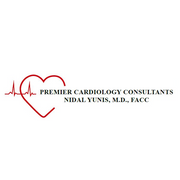
Cardiologists use the term "cardiomegaly" to refer to an enlarged heart. This situation is dangerous if left untreated, but to fix the problem, you need to first identify the cause. This guide explains some of the most common causes of cardiomegaly and how they're treated.
High Blood Pressure
According to the CDC, high blood pressure — or hypertension — affects around 75 million adults in the U.S. Consistently high blood pressure results in the heart working overtime, which can cause the muscles to thicken and enlargement to occur. Fortunately, this condition is treatable, especially if it's caught before severe damage occurs.
High blood pressure treatment typically involves medication, but cardiologists also suggest increased exercise and reduced sodium intake. Smoking is a top cause of high blood pressure, so it should also be eliminated from a person's lifestyle.
Arrhythmia
 An arrhythmia is an abnormal heartbeat caused by an irregular electrical signal in the heart that disrupts the valves’ contraction rhythm. When this occurs, the heart doesn't work as efficiently, which can result in an enlarged muscle.
An arrhythmia is an abnormal heartbeat caused by an irregular electrical signal in the heart that disrupts the valves’ contraction rhythm. When this occurs, the heart doesn't work as efficiently, which can result in an enlarged muscle.
Many patients can live with an arrhythmia without any treatment. However, if it causes an enlarged heart, then further action is needed. Medication is the most common treatment, but cardiologists also surgically implant pacemakers and cardioverter defibrillators for severe arrhythmia cases.
Cardiomyopathy
This condition is a disease of the heart muscle, which results in the heart weakening and becoming unable to pump blood efficiently. As the muscle struggles to provide adequate blood flow to the rest of the system, it can enlarge.
The condition occurs due to lifestyle habits or a heredity gene. Cardiologists prescribe medication and lifestyle changes to halt or slow the progression of the disease. Device implants may also be required, depending on the level of damage that's occurring.
Early diagnosis is key to treating cardiomegaly. If you suspect you might have this conditioning, turn to Premier Cardiology Consultants in Dothan, AL. The Houston County team utilizes various state-of-the-art tools — like echocardiograms and carotid sonograms — to provide the most thorough diagnosis and effective treatment. Schedule your consultation with a cardiologist today by calling (334) 699-6396, and learn more about their services by visiting them online.
About the Business
Have a question? Ask the experts!
Send your question

